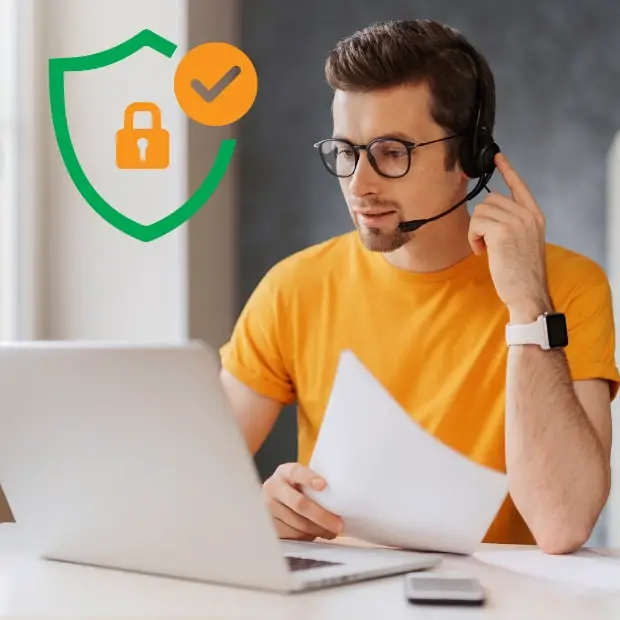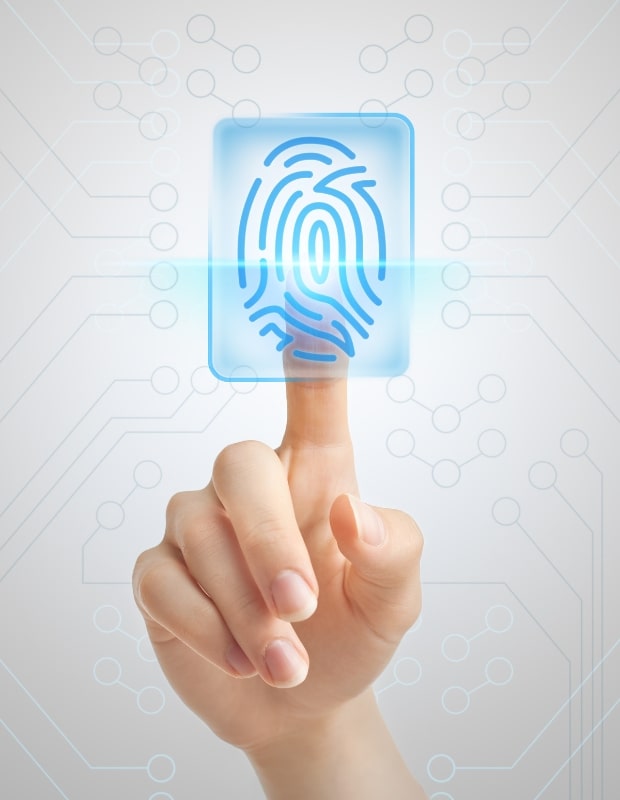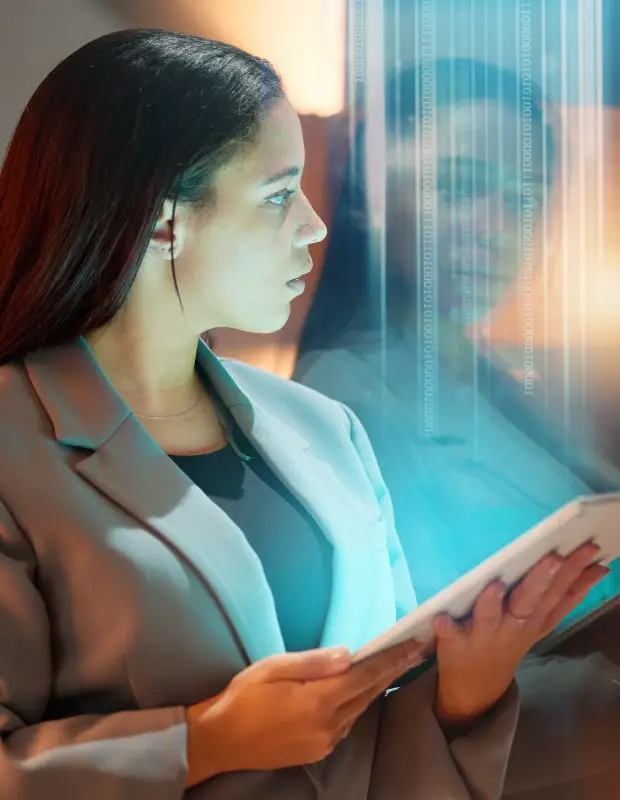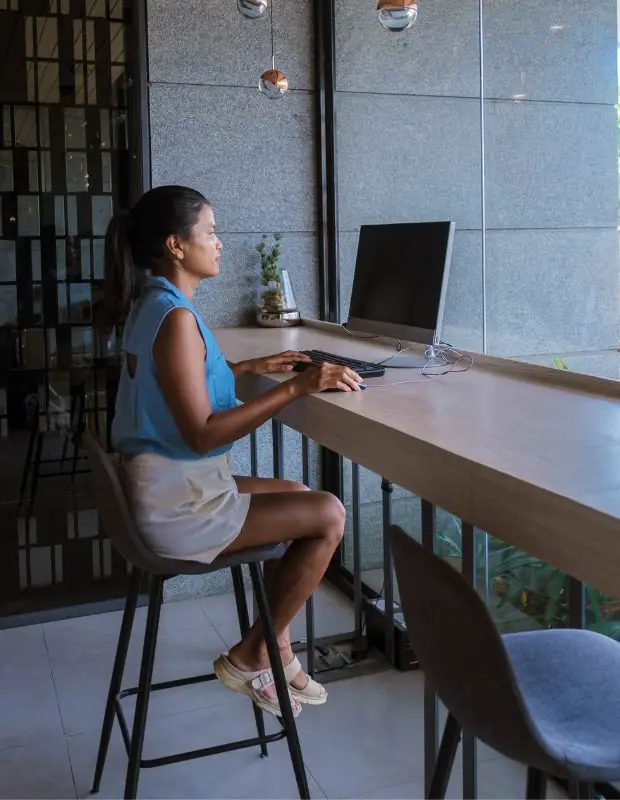
Are you looking for tips to mitigate cybersecurity risks as a remote worker?
You might think that working from your home office or that cozy neighborhood cafe is perfectly safe, but the security risks are real. According to the IBM Cyber Security Intelligence Index Report, 95% of data breaches result from human error, and globally, 30,000 websites are hacked daily, resulting in trillions of dollars in losses each year.
I highly recommend equipping yourself with relevant tools and knowledge to avoid:
- Malware
- Phishing
- Spoofing
- Denial-of-service (DoS) attacks
- Identity-based attacks
- Ransomware attacks
- And many other risks lurking in the online world.
Top Cybersecurity Tips For Remote Workers:
1. Be careful with opening emails from unknown sources
Malware is a type of software designed to disrupt, damage, or gain unauthorized access to a computer system. It includes viruses, worms, trojans, bots, spyware, adware, and many other malicious apps. It’s interesting to know that email is responsible for around 94% of all malware distribution. Zip and Exe files often contain malware, so make sure to always keep your guard up when you receive an email from an unknown source or even somebody you might know.
2. Use a VPN to hide your IP and private information
Using a VPN is especially important if you are using public Wi-Fi, but you should use it in your home office as well. If you don’t use a virtual private network, your IP and private data might fall into the hands of nefarious actors. But with an affordable VPN, you can connect to virtual servers in different parts of the world to encrypt your online activity and boost your security profile. Being able to access region-blocked services like Netflix or Amazon Prime from anywhere around the world is a bonus, especially if you’re traveling a lot.

3. Use a password manager to keep your passwords secure
I hope that by now you appreciate the fact that you shouldn’t use the same password for all of your accounts. If there’s a security breach, this could open the doors to all of your online accounts, which could have disastrous consequences. That’s why you should use a professional password manager like BitWarden or NordPass. It will keep all of your passwords locked in a secure digital vault and the only way to access them is to provide the master password. Password managers will also inform you about data breaches and insecure passwords in your database, and they’ll even help you generate complicated passwords that are impossible to guess.
4. Keep your web browser and apps up to date
Please don’t be a remote worker who uses an outdated operating system and apps. Browser updates are especially crucial since you’re using your browser to interact with the online world. Often, there are bugs to be fixed and security updates to be enacted in your software and you should hit the “update” button as soon as you see it. The longer you wait, the higher the possibility that you can fall prey to a security hole exploited by hackers. Remember to keep your phone apps up to date as well.

5. Use an anti-virus to keep your system in check
Antivirus software maintains a huge, up-to-date database of known threats and malicious software that could lead to a potential security breach. Setting up regular scans might help you identify security threats before they can cause any damage to your system. You can install an antivirus like Kaspersky or Bitdefender on your desktop and mobile devices, and know that they’ll protect your online activity at all times.
6. Create regular offline backups for extra security
Once a hacker gains access to your system, they can blackmail you by using ransomware. It means that if you don’t pay up, you will permanently lose access to all of your data. That’s why, as an extra security measure, come up with an offline backup strategy. Once a week or month, put all of your sensitive data on an external drive that’s not connected to the web. This will serve as a tool of last resort, in case you lose access to your system because of a cyber attack.
7. Don’t click on any link if you’re not sure that it’s secure
Always hover over a link to see where it leads before clicking on it. Many links (especially in emails), are disguised and can redirect you to websites that will install malware on your computer. There are malicious URL scanners out there that can be extremely useful. Just plug any suspicious link in the scanner and you should know if it’s a threat within a couple of seconds.
8. Use 2-factor Authentication (2-FA) for your most sensitive accounts
2-Factor authentication means that you need to confirm your login to an account by using an extra security layer. Usually, this is done by typing in a unique code on an authenticator app installed on your phone. Even if somebody knows your username and password to a specific service, they still won’t be able to log in. Many sensitive accounts (like the ones from Google) have 2-FA built in. But consider setting it up for any other sensitive account you own. Unless a hacker gets their hands on your phone as well, it will be nearly impossible for them to break in.

9. Stay away from public Wi-Fi networks
Public Wi-Fi networks might be convenient, but they pose a major security threat for remote workers. Around 18% of Americans use public Wi-Fi to work remotely and many of these workers are conducting financial transactions while using a public hotspot. However, skilled hackers can easily break into these public networks to attempt identity theft, steal your password, or snoop for confidential data on your device. That’s why it’s way better to create an encrypted hotspot by using your phone. Just make sure you get a decent data package that won’t run out too soon.
10. Use cloud-based file sharing and keep data off your device
As a remote worker with access to an enterprise system, you automatically have more protection than a regular internet user. Google Workspace or Microsoft 365 have extra layers of security, especially when it comes to file sharing and access features. Keep this in mind and avoid keeping any sensitive files on your hard drive. Instead, keep everything on the cloud and periodically download offline backups to mitigate cybersecurity risks.
Conclusion
Working remotely gives you a great sense of freedom, but it’s also not without risks. Implement the tips from this article and further your education regarding cybersecurity. If you’re not an easy potential target for hackers and have a cybersecurity incident response plan in place, they will find someone else who is. Cheers!
Hey there, welcome to my blog! I'm a full-time entrepreneur building two companies, a digital marketer, and a content creator with 10+ years of experience. I started RafalReyzer.com to provide you with great tools and strategies you can use to become a proficient digital marketer and achieve freedom through online creativity. My site is a one-stop shop for digital marketers, and content enthusiasts who want to be independent, earn more money, and create beautiful things. Explore my journey here, and don't forget to get in touch if you need help with digital marketing.

